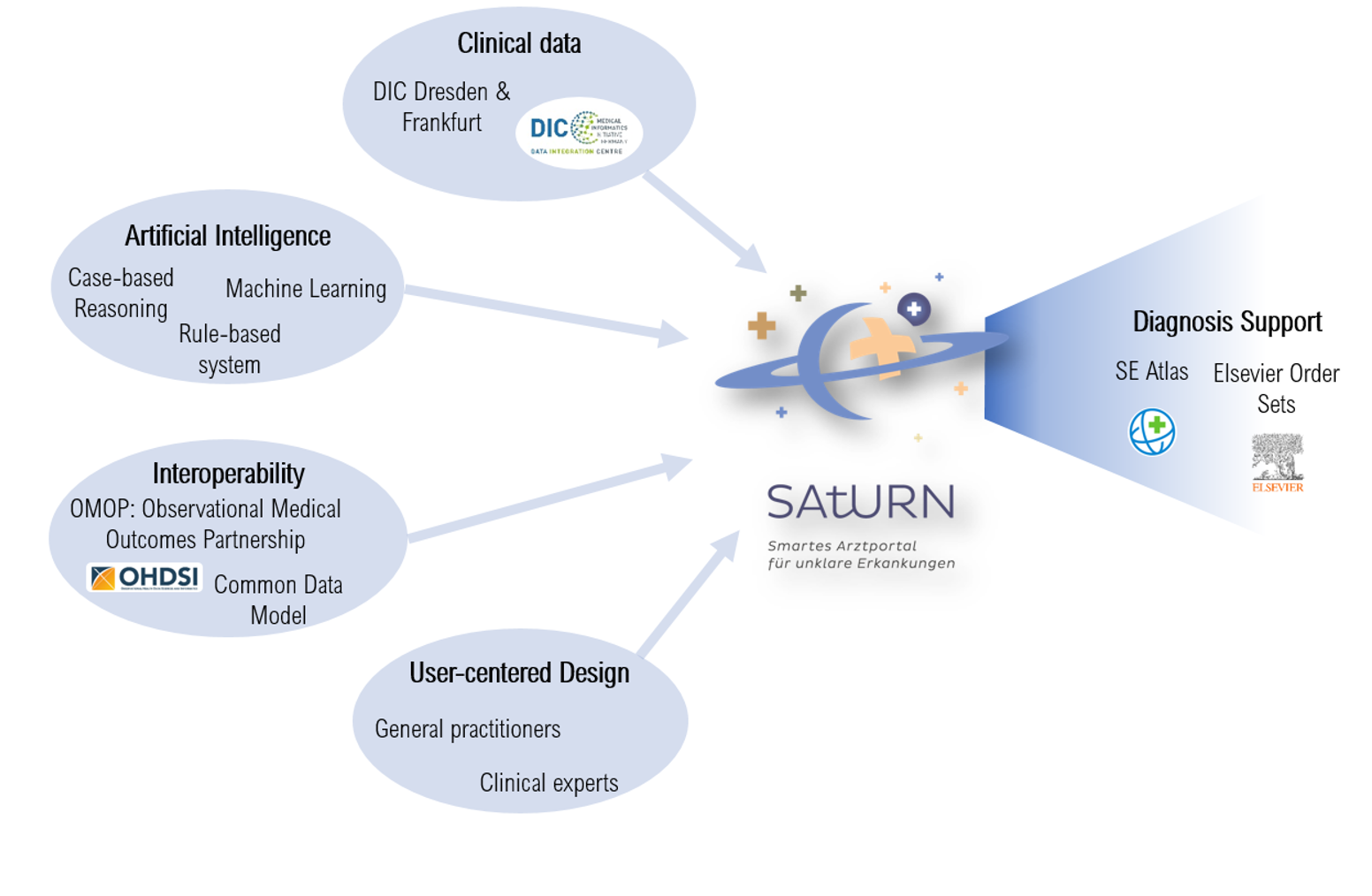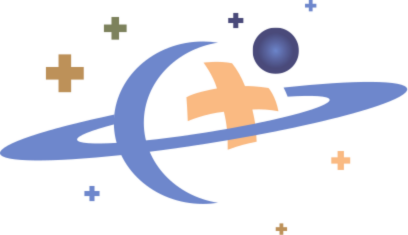Über SATURN – Smartes Arztportal für Unklare Erkrankungen
Patients often present to the general practitioner with non-characteristic symptoms. In some cases, they describe serious complaints that significantly impair their quality of life. These unclear and rare diseases present general practitioners with a difficult task. It is often difficult, especially in rural areas, to refer these patients to a specialist for diagnosis. In addition, there are only a few specialized centers for rare diseases, whose waiting times are very long. Adequate follow-up care for these patients is essential to treat a potentially serious disease with a dangerous and chronic course at an early stage. Current digital solutions, such as diagnosis apps, provide suspected diagnoses, but leave the local physicians alone with their patients to determine the next steps.
This is where the Smart Physician Portal for patients with unclear diseases (SATURN) comes in. With the help of Artificial Intelligence (AI), based on expert knowledge and real clinical data, diagnostic suggestions are made. Furthermore, a register with centers for rare diseases is connected, so that direct contact can be made with specialists. In the case of common diseases, instructions for further action are provided.
Diagnosis Support with Artificial Intelligence

Three different AI methods are investigated for their applicability in diagnosis discovery.
- Rule-based system: A decision-making system based on expert knowledge. The knowledge base is based on medical guidelines and interviews with clinical experts. From this, a set of rules is created that can be used for diagnosis.
- Case-based Reasoning: Case-based reasoning compares the currently entered case with the data in the case database and performs a similarity analysis. Previously closed cases with similar parameters provide a possible diagnosis.
- Machine Learning: The use of machine learning algorithms enables non-linear modeling of the data. The basis for machine learning is clinical case data in which the algorithm identifies features and patterns and uses them to make a diagnosis.
The clinical data are provided by the data integration centers (DIC) of the university hospitals in Dresden and Frankfurt, in compliance with data protection regulations and with the approval of the ethics committees. In order to standardize the clinical data on a semantic and syntactic level, a Common Data Model (CDM) is created. This CDM implements international standards and thus paves the way for international data exchange for research purposes.
The SATURN portal is implemented with the user-centered design. A requirements analysis with a focus group of GPs was conducted. The implementation of the portal is based on the resulting requirements catalog in order to create a user-friendly application.
With the SE Atlas (www.se-atlas.de) ist ein Register mit Zentren für Seltene Erkrankungen angebunden, sodass direkt Kontakt mit Spezialist:innen aufgenommen werden kann. Für den Fall von häufigen Erkrankungen werden in Form von Order Sets Handlungsanweisungen für das weitere Vorgehen zur Verfügung gestellt.
